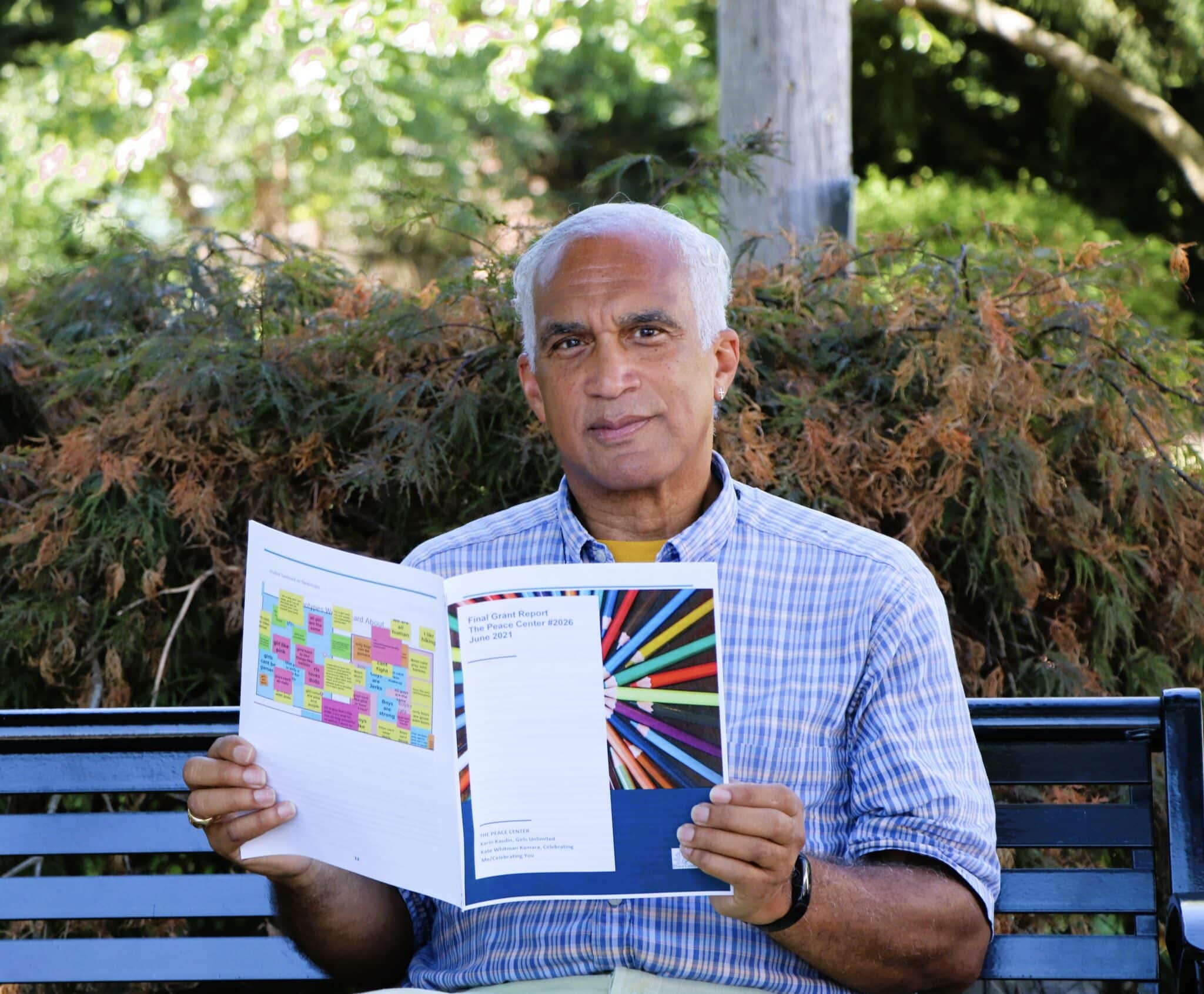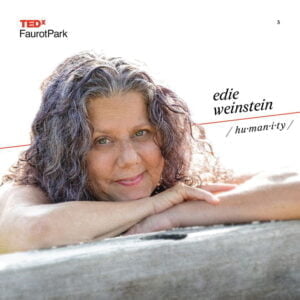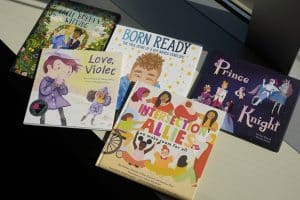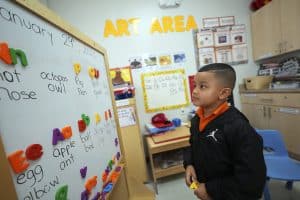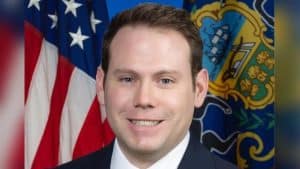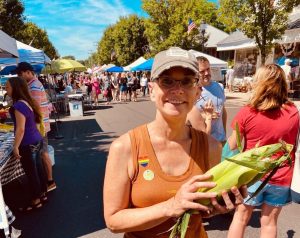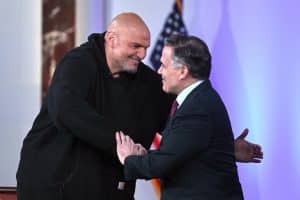Welcome to the Changemaker column in which I will be interviewing social justice movers and shakers in our community. I have been an advocate and activist for 40 years, marching for the Equal Rights Amendment, No Nukes, and LGBTQ+ rights in my 20s. Now, in my 60s, you are likely to see me standing in solidarity at rallies, protests and vigils in Bucks County. I use my journalistic voice to write on progressive topics with the intention of making the world a more peaceful, egalitarian, safe and sustainable place.
After the initial interview with Danny Thomas, who will be celebrating his 4th anniversary as Executive Director of The Peace Center in Langhorne, we had a lengthy conversation, prompted by the murder of Tyre Nichols at the hands of five Memphis, Tennessee police officers. The bodycam images horrified me, and I was glad to be able to have a conversation with someone else who holds strong reactions and opinions about what we all saw.
Thomas shared, “We have seen video after video of Black men, especially, dying at the hands of police officers. It was the brutality of the assault more than the end result of his death. We have to be able to sit with it without reconciling ourselves to it. These guys were horrible. Inhuman and inhumane. What was it about Tyre or what had they had been through that day that he was such a trigger for that much depravity to be unleashed?”
Thomas asks, “When you have this violence around you, how do you respond in love?” He wants to know how we can collaborate and support each other. “The Civil Rights movement was racialized when it was really about the poor. We need strong white allies.”
Edie Weinstein: How do you define peace?
Danny Thomas: First, we must not think of Peace as everything is all right with everyone in the world and there is no conflict of any sort. Peace is more a state of being in relationship and navigating with others and the environment in beneficial ways so that all are respected and valued, even when there might be chaos swirling around. Peace is seeing those around you and working toward the good for all people, which at times may require conversation, negotiation, and even compromise toward a mutually agreed upon outcome.
EW: How do you “walk the talk”?
DT: I endeavor to see the value and validity of those in the room with me at any given moment, recognizing that we all have something to offer to each other. I try to practice good communication techniques and skills to ascertain the nature of the “transaction” with the other person, and then shift from transactional communication into a more relational style. I ask for, share, and negotiate boundaries, values, and expectations. To paraphrase some 12-step programs – expectations are resentments waiting to happen. I think the key of walking the talk is to remember the humanity of the other person/people and treat others in the highest manner that you would like to be treated (as best to your ability).
EW: Who were your inspirations?
DT: I credit my father with a lot of the skills of peace building as I watched him strategically navigate a world full of racial disparity, serve as the high functioning role model for his siblings and the local community, and share bits of wisdom with his five children (the most enduring lesson: “Your integrity is the thing that people can’t take from you. They may try to tarnish it, but the truth will always be there.”)
I also credit Miss Rosa Carter and her quiet yet forceful determination toward justice. She attended the Storer College in Harpers Ferry, West Virginia, sometime in the mid-1920s and proceeded to teach generations of African American students well into the 1980s. She exemplified quiet force and determination while maintaining (often commanding) a presence and respect just by entering a room.
I also have an admiration for the parents of Nelson Mandela who helped shape him into the lawyer advocating for not just the Xhosa, but all people as the law allowed. He lived out his values especially as those values shifted from armed resistance into peaceful, nonviolent presence. And of course, Rev. Dr. Martin Luther King Jr, who acknowledged the realities of segregation, sought to work for ALL poor people, and encouraged to be their best selves in the world (even when it is unappreciated or scorned)
EW: Please talk about The Peace Center and its focus.
DT: Our Vision – A diverse community committed to living together in Justice and Peace.
Our Mission – To educate, empower and support individuals and organizations in efforts to prevent violence, promote peaceful resolution of conflict and foster inclusive, equitable and safe communities locally, nationally, and worldwide.
The mission and focus of The Peace Center has been along these lines of conflict resolution for our past 40 years. Although rooted in the anti-nuke movement, the founders were seeking ways to de-escalate conflict and develop life sustaining, forward-moving plans for all people on earth.
Although a lofty goal, our current focus is to a make lasting impact in our corner of the world in ways that help “seed the fields” for peace to grow through those who work with us, as well as against us at times. In working against us, at least it is an acknowledgment that there is something needing work and that provides an opportunity for dialogue and potential collaboration.
EW: Do you get discouraged?
DT: Let’s be real, I’m a Black man living in America! Of course I get discouraged, and angry, and disappointed, and hopeful! However, I do not have the luxury of getting paralyzed. Life is still happening whether I engage or not. I often joke that even though Chaka Khan was “Every Woman” (she wasn’t), I’m not every Black man. No culture is monolithic. However, by sharing authentically who I am, maybe it will spark empathy and compassion in those I encounter who haven’t thought beyond their own group. After all, “some of my best friends are white.” I invite those friends into helping form strategic ways to build long lasting, equitable society.
EW: How do you push a reset button to prevent resistance fatigue?
DT: I need to reframe resistance fatigue. Honestly, that can be viewed as a statement of privilege meaning that I can take a break from the resistance when my very brown body/being may be at odds with others who see me as they are/wish and not as who I am or what I really do. I reset by finding my safe places and people that I have cultivated and grown to trust through the years.
EW: What role do you see for children in peacemaking?
DT: Children are integral to the peace making and peace building processes because they begin with innocence and acceptance. It is noted that children as early as 6 months begin to distinguish colors, but it takes some adult to teach the discriminating variations. It is often easier to de-program the biases among children before they develop into hatred.
EW: How do we teach children about peace and social justice?
DT: The easiest way to teach is by example. Adults treating people with respect, offering kindness, and showing empathy are the best ways to teach the children. We live what we have learned.
EW: Please talk about The Peace Center and anger management classes.
DT: The Peace Center has a partner program called SAFE, Supportive Alliance for Family Empowerment, that offers programs in anger management as well as individual counseling to help families struggling with domestic violence issues. The initial goal of many people trapped in domestic violence cycles isn’t to leave. They want the behaviors to change. Vera and John Anthony Bochnowicz and SAFE Counseling help families short circuit violent behaviors.
EW: What is Bridges To Peace?
DT: Our Bridges to Peace program is a one-hour introduction to The Peace Center for folks who may not be fully familiar with the services that we offer. We share impactful stories about our work in schools, the community, and Buck’s County’s Bullying Prevention Resource Center.
EW: What are Democracy Circles?
DT: Democracy Circles are facilitated adult conversations held on the third Wednesday evening of each month to allow folks to gather (virtually since 2020) to share thoughts on selected topics ranging from the observations of ethnic and cultural month observations (Women’s, Indigenous, BIPOC) to responding to contemporary issues such as building Beloved Community and reigniting empathy and compassion instead of becoming or being desensitized.
EW: How can we stand up to injustice when we observe it?
DT: First and foremost, if you want justice, you must look outside enough to move through the world doing justice. THEN, we develop relationships beyond “our usual suspects.” Using our L.O.V.E. Is The Answer principles, that involves learning about others in our community, then opening ourselves/our hearts to them as if our existence depended on their well-being, then volunteering to be part of the solution in the problems instead of just identifying them, and empowering others to join in the process of learning, opening and volunteering. So often we go out to fight oppression that we walk past opportunities to offer justice and peace.
EW: I struggle with not holding others in disdain for their perceived harmful beliefs. How do you deal with that inclination?
DT: This one is the most difficult! We posed a similar question to the participants at our 11th MLK Peace and Social Justice Summit on January 15. How hard is it for you to think about “Love” when someone clearly seems to hate you? My personal answer is that love is based on who I am and how I see the world and others in front of me. I try to see and treat others, even those who do not agree or seem to “like” me with respect because somewhere, someone likes them. They, too, are/were someone’s son or daughter. My trite response is “I love you because of who I am. I may come to like you because of who you are.” That hints at potential for future contact, understanding and relationship/peace building.
EW: What is the L.O.V.E is the Answer program?
DT: The L.O.V.E. Is The Answer movement is a program to help communities build transformative relationships with police officers, community members and organizations to improve life and safety for all citizens. The hope is that applying the principles will deepen the relations and allow peace to spread instead of the mentality of always fighting and conquering violence. This initiative is forged through the Bucks DA’s office and offers film screenings and dialogue facilitation through TPC.
We must shift away from the primary reaction of fighting into the primary response of building (in all aspects). We still must speak out when we do encounter injustices but develop eyes and heart to see beyond the present darkness into a brighter, hopeful future.
EW: What are the priorities for The Peace Center this year?
DT: One of the priorities for this year is to develop ways to reach beyond the barricades to bring folks from their entrenchments to the lines for building dialogue instead of hurling threats and lobbing insults. A society based on Win-Lose encounters, economics and social situations does not have a longevity mindset.
We hope to collaborate with more school superintendents to develop a comprehensive approach to enhancing the education of students from kindergarten through high school as they learn tools to value themselves and their classmates, practice kindness, and learn to lead the future.
Another priority is to help depoliticize and depolarize the conversations on race, gender equity and economic justice. When we allow kindness to become an issue or platform plank, we dehumanize and devalue those we claim to be advocating for. AND when ‘our’ side “wins”, there is a tendency to stop or slow the actions toward full justice (I’ve been black for 60+ years, through both Democratic and Republican leadership, and racism has been there – almost consistently – regardless of which side won)
